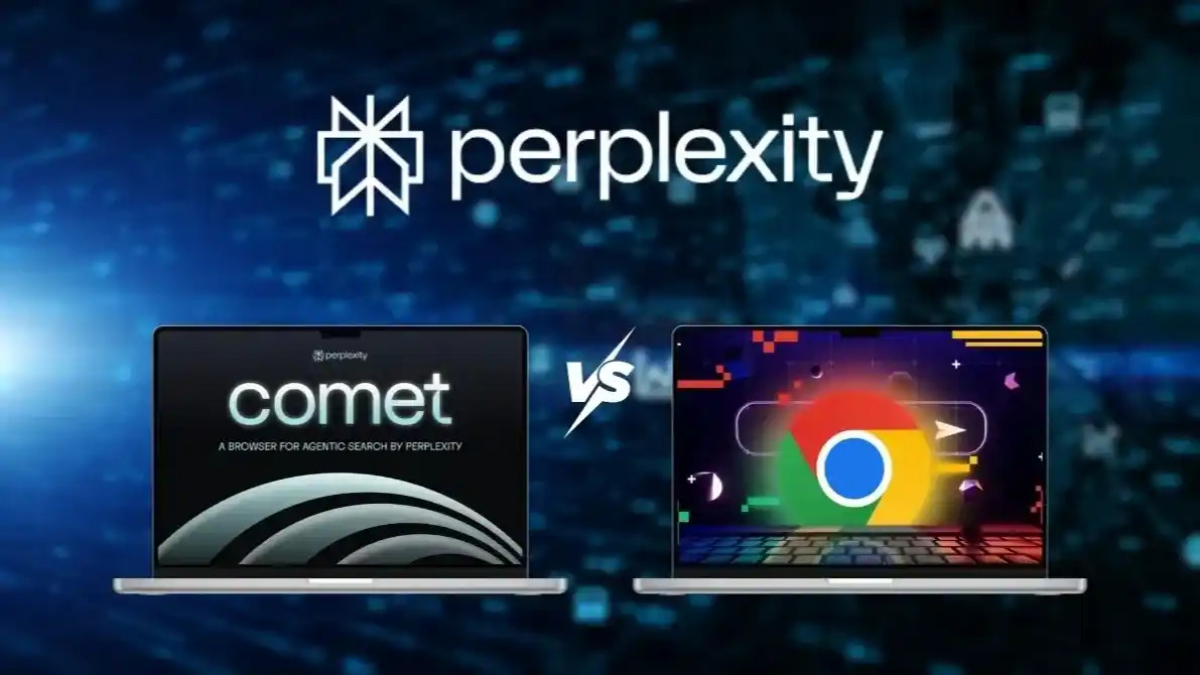Now Reading: Alphabet Shares Dip as Perplexity Unveils Free ‘Comet’ AI Browser, Challenging Google’s Dominance
-
01
Alphabet Shares Dip as Perplexity Unveils Free ‘Comet’ AI Browser, Challenging Google’s Dominance
Alphabet Shares Dip as Perplexity Unveils Free ‘Comet’ AI Browser, Challenging Google’s Dominance

The stock of Alphabet Inc., Google’s parent company, experienced a minor but notable decline today following the announcement by AI startup Perplexity that its advanced ‘Comet’ web browser would now be available to all users for free. The strategic move is being interpreted by market analysts and industry observers as a direct, aggressive challenge to the long-held supremacy of Google’s Chrome browser and its core search engine business.
Alphabet’s stock (NASDAQ: GOOGL) slipped by approximately 0.6% on the news, a movement that suggests investor concern over a potential, albeit nascent, disruption in the digital market. The dip reflects the possibility that Perplexity’s new offering could erode the market share of Google Chrome and shift user behavior away from the traditional, ad-driven search model that forms the bedrock of Alphabet’s vast revenue stream.
The ‘Comet’ Threat: Agentic AI vs. Traditional Browsing
Perplexity’s Comet is not a conventional web browser; it is being aggressively positioned as one of the first truly “agentic” browsers—a cognitive assistant that uses artificial intelligence to move beyond simple search and navigation. Key features of the free-for-all browser include:
- AI Sidebar Assistant: A built-in AI companion capable of summarizing lengthy articles, drafting emails, managing calendars, and executing complex, multi-step tasks (such as booking travel or comparing product prices) directly within the browser interface.
- Direct Answers: Leveraging Perplexity’s own AI search engine, Comet focuses on providing synthesized, direct answers complete with source citations, rather than a list of “10 blue links” that users must sift through. This capability directly contrasts with Google’s search experience.
- Workflow Integration: Comet introduces “Workspaces” to organize tabs and projects based on tasks, and its agentic capabilities aim to automate complex online workflows, significantly boosting productivity for researchers, students, and professionals.
Initially launched exclusively for Perplexity’s premium Max subscribers, which was previously priced at up to $200 per month, the decision to drop the price barrier for the core product marks a significant pivot toward mass adoption. Perplexity CEO Aravind Srinivas has stated the goal is to “build a better internet” that is accessible to everyone, directly taking aim at what he describes as the “low-quality internet content” generated by existing search paradigms.
A New Competitive Landscape
The free launch of Comet comes at a time of heightened scrutiny and competitive pressure for Google. The tech giant is already facing a significant federal antitrust lawsuit, and its own efforts to integrate AI into its search and Chrome browser with features like Gemini-powered tools are ongoing. The Perplexity challenge, however, is a fundamental one, seeking to change the user’s base expectation of what a browser should do—from a passive portal to a proactive task-completion agent.
To maintain a monetization strategy, Perplexity also announced Comet Plus, a $5 per month subscription that provides users and their AI assistants with direct access to premium content from partnering publishers, including major news outlets. This model offers an alternative revenue-sharing mechanism that compensates publishers based on both human and AI-driven engagement, attempting to address the growing conflict between AI companies and media creators.
The long-term impact of Comet on Alphabet’s stock and Google’s market position remains to be seen. While the stock decline was minor, it serves as an early warning that investors are closely monitoring the emerging AI-browser space, which has the potential to redefine the gateway to the internet and challenge Google’s decades-long advertising-centric business model. The battle for the future of online interaction has officially moved from the search bar to the browser itself.










